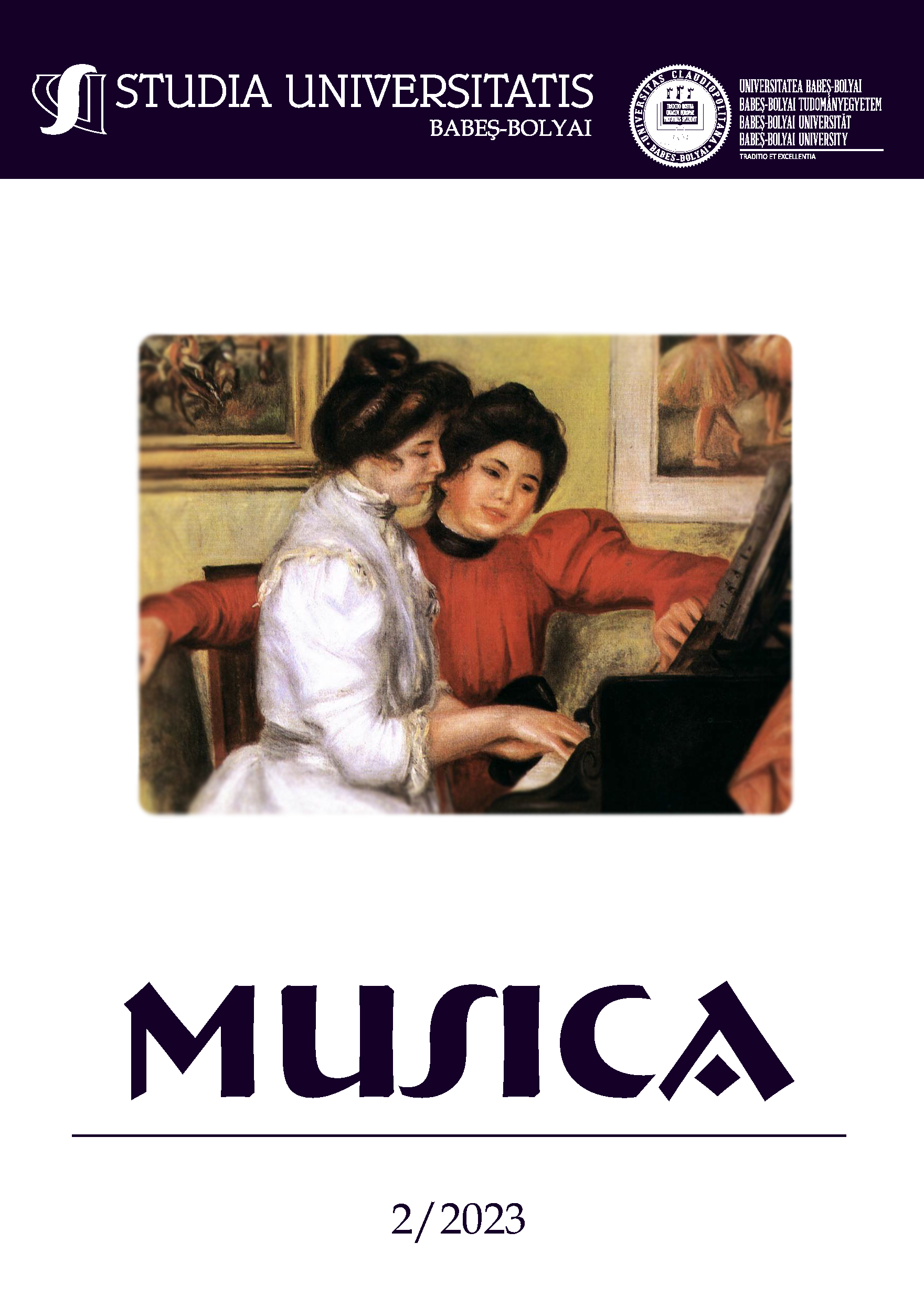The Cherubikons of Ukrainian Composers of the 20ᵗʰ–21ˢᵗ Centuries: The Spiritual Genre in Modern Stylistic Interpretation
DOI:
https://doi.org/10.24193/subbmusica.2023.2.09Keywords:
Cherubikons, sacred choral music, sacred music, music of modern Ukrainian composers, musical style, musical genre, musical languageAbstract
There are considered the features of the Cherubikons as a special troparion in the system of Orthodox worship. It is emphasized that the singing of the Cherubikon is characterized by extraordinary splendor and solemnity; historically, it always stood out noticeably from other chants. It is indicated that the style of the Cherubikons of various stages of the development of the liturgical singing was influenced by the general style panorama of that era. It is determined that, despite this, during each of the historical eras, significant samples of the Cherubikon were created, which retain visible connections with the genre invariant, based on the reliance on the text, strophic and melodiousness. It is determined that the Cherubikons performed in churches today are stylistically simple, but very convenient for choral singing. Separately allocated spiritual music, written not for church use, but for concert performances by modern composers. It is revealed that Cherubikons songs written by modern Ukrainian composers belong to sacred music and have no direct links with liturgical practice. They are individual author’s implement of the canonical text. The musical language of these Cherubikons is extremely complex and involves the use of modern composition techniques. This allows composers to embody the symbolism of the content of the liturgical text and a new look at the traditions of Christian singing.References
Manulyak, Ostap. Sacred work of Lviv composers of the late 20th – early 19th century in the context of the leading trends in modern religious music: PhD thesis, Lviv, 2009.
Maskovych, Tetyana. Choral creativity of H. Havrylets in line with the “new sacredness”: PhD thesis, Ivano-Frankivsk, 2018.
Puchko, Yuliya. Contemporary choral music: to the question of interpretation, in: Kyiv musicology. Cultural Studies and Art History, vol. 23, Kyiv, 2007 (184–192).
Pysmenna, Orysya. Choral music by Lesya Dychko. Lviv, 2010.
Shevchuk, Olga. About the confessional content of monodal tunes of the XVII-XVIII centuries (based on the materials of Ukrainian and Belarusian Irmoloi), in: Scientific Bulletin of NMAU named by P. Tchaikovsky, vol. 15, Kyiv (58–70).
Tyschenko, Oleksandr. Biblical motifs in the choral work of Evgeny Stankovich, in: Kyiv Musicology, vol. 19, Kyiv, 2006 (p. 271–277).
Downloads
Published
How to Cite
Issue
Section
License
Copyright (c) 2023 Studia Universitatis Babeș-Bolyai Musica

This work is licensed under a Creative Commons Attribution-NonCommercial-NoDerivatives 4.0 International License.



